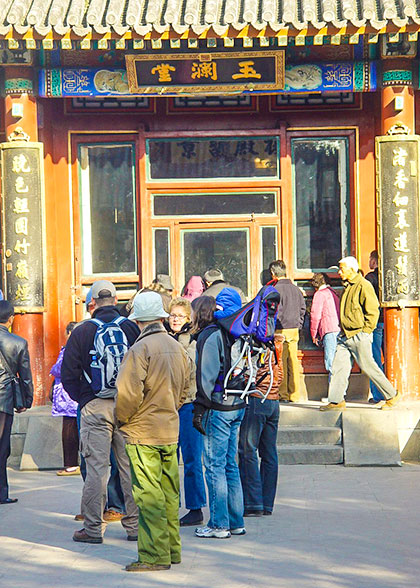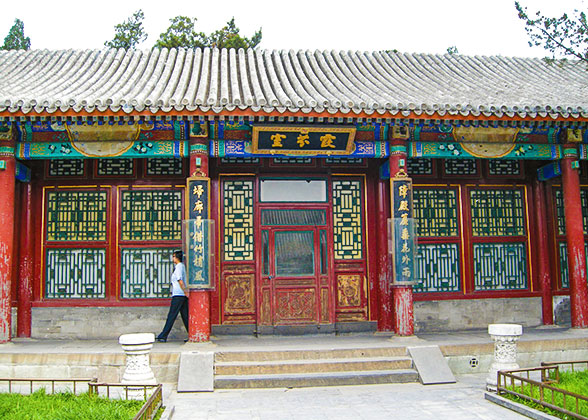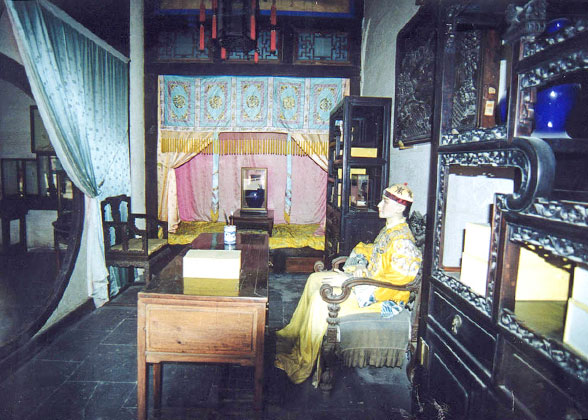Hall of Jade Ripples (Yulantang)
Hall of Jade Ripples is also notable for a historical event -after the failure of the Reform Movement in 1898, Emperor Guangxu, who advocated reform, was put under house arrest here by Empress Dowager Cixi. The Reform Movement, also known as the "Hundred Days Reform", was aimed at reforming the outdated feudal system and creating a new edict. However, because of sharp disagreements between Guangxu and Empress Dowager Cixi as well as their fellows, the movement only lastedfor 103 days. Emperor Guangxu was consigned to the Hall of Jade Ripples, and his six associate reformists were beheaded. In order to prevent him from escaping and accessing the outside world, brick walls were built in both annex halls so that both exits in the east and west were blocked. To the south, Cixi assigned eunuchs to watch himcontinuously. Although most of the walls have been dismantled now, a vestige of them can still be seen, as a witness of that part of Chinese history.
 |
| Hall of Jade Ripples |
The interior of the hall is furnished with hundreds of precious antiques, most of which were made in the Reign of Emperor Qianlong, such as the desk and the throne. These are rosewood framed and sandal wood centered with exquisite carvings. The screen behind the throne is composed of two layers of glass painted with both traditional Chinese and Western landscapes. On the desk, necessities for studycan be found, especially the four stationery treasures of China. During that time two annex halls were furnished with many precious objects, such as the Arhat Bed, the screen wall, the fans crossed behind the throne, kang table, an insert screen, and so on.
However, according to record, after the Reform Movement, Hall of Jade Ripples was mainly furnished with ordinary furniture, as only 105 pieces of furnature remained. Also, objects that were set out in the two annex halls were moved due to the walls built in 1898. After the foundation of the People’s Republic of China in 1949, all furnishings in the yard were restored, to combine characteristics of both Qianlong and Guangxu periods.
 |  |
![]() Next: Yiyun House
Next: Yiyun House
![]() Related Link: Summer Palace Travel Tips
Related Link: Summer Palace Travel Tips